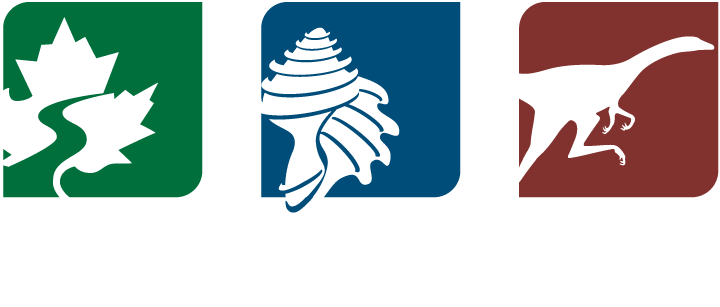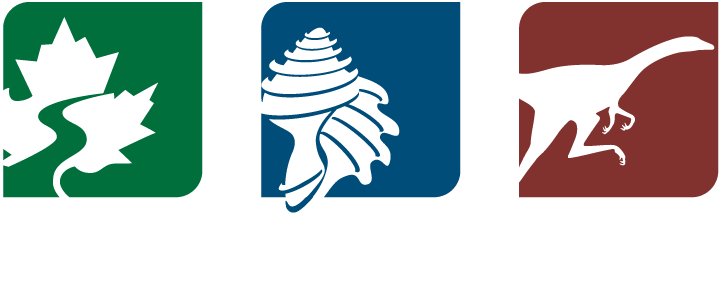Gregory P. Dietl
Dr. Gregory P. Dietl
Director of Collections
Concentration
Paleocology, Conservation Paleobiology
Graduate Fields
Geological Sciences
Education
Ph.D. North Carolina State University
Additional Links
Overview
Dr. Dietl serves as the Curator of Cenozoic Invertebrates and Director of Collections at PRI. He also serves as Adjunct Associate Professor of Earth and Atmospheric Sciences at Cornell University.
Research Focus
Dr. Dietl is a paleoecologist by training. His current research program centers on efforts in the rapidly developing field of Conservation Paleobiology—a subdiscipline of paleontology that applies geohistorical data and approaches to the conservation and restoration of biological diversity and ecosystem services.
Instruction Focus
Topics in Paleoecology (EAS 7650)
Honors, Awards, and Appointments
Gaylord Donnelley Environmental Fellow, Yale University
Atkinson Center for a Sustainable Future Faculty Fellow, Cornell University
Selected Publications
Kelley, P. H., G. P. Dietl and C. C. Visaggi. 2019. Model for improved undergraduate training in translational conservation science . Conservation Science and Practice 1:e5, [https://doi.org/10.1111/csp2.5]. [paper] [#851]
Dietl, G. P., J. A. Smith and S. R. Durham. 2019. Discounting the past: the undervaluing of paleontological data in conservation science . Frontiers in Ecology and Evolution 7:108 doi: 10.3389/fevo.2019.00108.. [paper] [#852]
Dietl, G. P. and K. W. Flessa. 2018. Should conservation paleobiologists save the world on their own time? . Pp. 11-22, In C.L. Tyler & C.L. Schneider (eds.), Marine Conservation Paleobiology. Topics in Geobiology 47, Springer Nature, Cham.. [book chapter] [#847]
Kelley, P. H., G. P. Dietl and C. Visaggi. 2018. Training tomorrow’s conservation paleobiologists . Pp. 209-225, In C.L. Tyler & C.L. Schneider (eds.), Marine Conservation Paleobiology. Topics in Geobiology 47, Springer Nature, Cham.. [book chapter] [#848]
Smith, J. A., J. Handley and G. P. Dietl. 2018. Effects of dams on downstream molluscan predator-prey interactions in the Colorado River estuary . Proceedings of the Royal Society Series B. 285: 20180724. [http://dx.doi.org/10.1098/rspb.2018.0724]. [paper] [#849]
Dietl, G. P., J. Nagel-Myers and R. B. Aronson. 2018. Indirect effects of climate change altered the cannibalistic behavior of shell-drilling gastropods in Antarctica during the Eocene . Royal Society Open Science 5: 181446. [http://dx.doi.org/10.1098/rsos.181446]. [paper] [#850]
Dietl, G. P. and K. W. Flessa (editors). 2017. Conservation Paleobiology: Science and Practice . University of Chicago Press, Chicago. 316 pp. [book] [#845]
Dietl, G. P. and J. A. Smith. 2017. Live-dead analysis reveals long-term response of the estuarine bivalve community to water diversions of the Colorado River . Ecological Engineering 106 (B): 749-756. [paper] [#846]
Dietl, G. P. and S. R. Durham. 2016. Geohistorical data reveal no impact of the Deepwater Horizon oil spill on oyster body size . Royal Society Open Science. 3: 160763 [http://dx.doi.org/10.1098/rsos.160763]. [paper] [#843]
Dietl, G. P.. 2016. Brave new world of conservation paleobiology . Frontiers in Ecology and Evolution. 4:21. doi: 10.3389/fevo.2016.00021. [paper] [#844]
Dietl, G. P., S. Kidwell, D. Burney, M. Brenner,, K. W. Flessa, S. T. Jaskson and P. Koch. 2015. Conservation paleobiology: leveraging knowledge of the past to inform conservation and restoration . Annual Review of Earth and Planetary Sciences. 43: 79-103. [paper] [#842]
Dietl, G. P. and K. W. Flessa. 2011. Conservation paleobiology: putting the dead to work. Trends in Ecology & Evolution, 26: 30-36.


